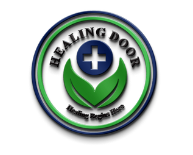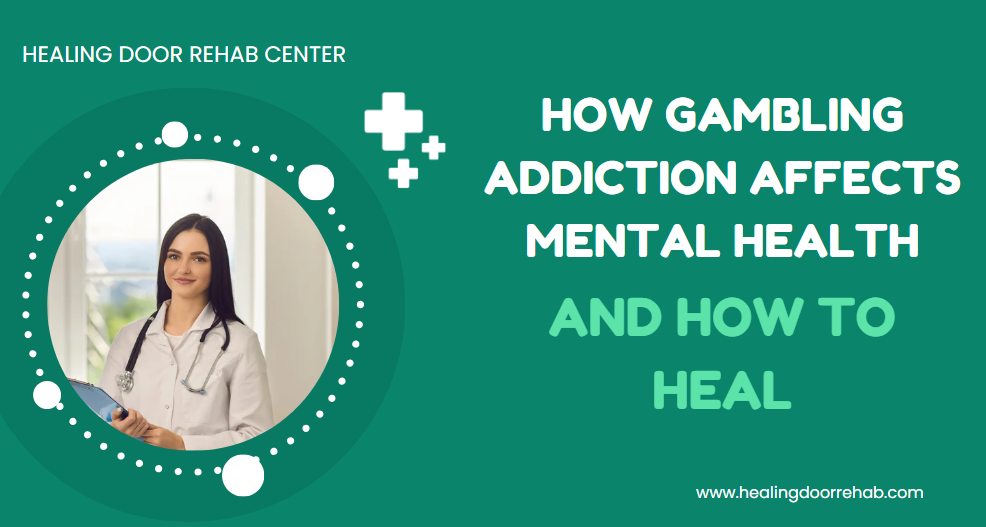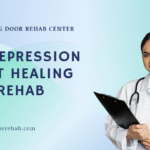How Gambling Addiction Affects Mental Health—and How to Heal
Gambling addictionoperates as a medical condition affecting the brain and causing changes across emotional, internal psychological and relational states that affect a person’s general health. Medical authority American Psychiatric Association classifies gambling addiction as a diagnosable mental disorder which produces intensive psychological distress and escalates in severity when no treatment occurs.
Healing Door Rehab Center acknowledges that gambling addiction represents a medical health problem rather than personal failure therefore it requires both therapeutic care and compassionate services and extended support. The following article investigates the psychological consequences that result from gambling addiction while providing research-backed strategies to help patients recover from this disorder.
What Is Gambling Addiction?
The medical term for compulsive gambling stands as gambling disorder when people cannot control their gambling behavior while facing destructive personal or social effects.The symptoms of gambling disorder include an obligation to bet increasing funds while also demonstrating repeated unsuccessful attempts to stop gambling and showing signs of tension during gambling activities. Gamblers with this disorder frequently use gambling as a way to escape negative emotions or stress. People with gambling issues make false statements to protect their betting activities which leads to destroyed partnerships as well as destroyed occupational pathways and lost educational options.
Research conducted by the National Center for Responsible Gaming indicates that gambling disorder affects 1% of U.S. adults within the population. Although fewer than 1% of U.S. adults receive a gambling disorder diagnosis many millions of individuals encounter dangerous gambling patterns which result in important damage to both themselves and their loved ones.
How Gambling Addiction Impacts Mental Health
1. Increased Rates of Anxiety and Depression
A gambling addiction typically causes severe anxiety along with depression symptoms in affected individuals. Data from Psychiatry Research (2014) indicated that mood disorders existed in 49% of problem gamblers alongside anxiety disorders found in 41% of problem gamblers.
When people experience financial distress from gambling combined with secrecy and feelings of guilt along with breaches of trust these factors contribute to persistent worry and insomnia as well as clinical depression. The act of gambling offers individuals a false escape even though it generates worsening problems they need to evade.
2. Emotional Instability and Mood Swings
Winning a competition brings intense joy but losing brings deep sadness for the afflicted person. Mood swings along with irritability and emotional dullness are typical results of riding the emotional rollercoaster. Long-term instability will impact all members of the gambler’s life and their extended environment.
3. Isolation and Relationship Damage
Gambling addiction prompts people to cut off their family connections. People tend to make false statements to hide their actions and choose to omit social events which threaten their exposure. The emotional stress that results from social isolation becomes worse leading to increased difficulty in solving the issue without professional support.
4. Increased Risk of Suicide
Amazingly the primary worrisome information about addiction to gambling exists in the direct link between gambling problems and self-harm ideas and actual attempts at suicide. Research published in the Journal of Nervous and Mental Disease (2010) discovered that suicide attempts affect 20% of people who have gambling addiction among the highest attempted suicide rates in mental illnesses.
Co-Occurring Disorders: Dual Diagnosis
People who suffer from gambling addiction show similar symptoms with other conditions in most instances. Approximately many people who experience this addiction also have other mental health issues that doctors identify as dual diagnosis substances. People who fight compulsive gambling behaviors often deal with dual diagnosis because they struggle with substance use disorders together with bipolar disorder and obsessive-compulsive disorder (OCD), attention-deficit/hyperactivity disorder (ADHD) or post-traumatic stress disorder (PTSD).
Multiple mental health issues create intricate relationships with gamblers’ addiction to gambling. A person with unmanaged depression or anxiety can use gambling to escape their problems but the stress from gambling development worsens their psychiatric conditions. Nonetheless bipolar disorder and ADHD together create natural tendencies to be impulsive which make people more susceptible to gambling issues.
An integrated treatment strategy should target all relevant disorders since they constantly reinforce one another. The omission of either form of treatment leads to either failure to recover completely or complete relapse of symptoms. Our integrated approach at Healing Door Rehab Center treats the gambling addiction together with all coexisting mental health conditions through a holistic framework. At Healing Door Rehab Center professionals who are state-licensed perform thorough assessment procedures which enable them to create individualized recovery plans that address emotional state and behavioral transformation needs. Treating patients as whole beings above their symptoms creates a superior way to achieve sustained recovery and develop personal health and balance.
Physical Consequences of Gambling Addiction
The physical harm caused by gambling addiction proves equally damaging to the body although its emotional and mental effects tend to be more visible. The physiological results of gambling-related stress and anxiety cause extensive harm to the body. Members of the gambling addiction group commonly experience disrupted sleep because worry and restlessness prevent them from dropping off into slumber or keeping it throughout the night. The absence of rest can lead to continuous headache development which worsens focus problems and daily functioning ability. People who struggle with gambling addiction face gastrointestinal problems including stomach distress together with nausea and irregular digestion because of both their anxiety and their unhealthy eating behavior.
High blood pressure caused by increasing stress levels increases cardiovascular risks in individuals. The addiction to gambling produces negative nutritional habits while creating hygiene issues because addicted gamblers put their gambling activities before their personal wellness. Long-term neglect causes both mental exhaustion and physical fatigue therefore it drains the mind and body.
The physical symptoms that develop from gambling addiction result directly from continuous emotional pressure and anxiety which plague those affected by this addiction. The health problems will become deeper without appropriate medical care and result in lower quality of living. Healing Door Rehab Center approaches addiction treatment through therapy programs that help patients address the body and the mind for complete recovery. Our facility stands ready to deliver complete healthcare treatment through which patients recover their wellness both mentally and physically to rebuild their lives.
How to Heal: Effective Treatment Options
The process of recovery from gambling addiction requires appropriate help and clinical treatment not forcing the issue with self-control. The therapeutic model at Healing Door Rehab Center delivers customized models of care for every patient.
1. Comprehensive Clinical Assessment
Every recovery journey demands a deep understanding of reality at its beginning point. During initial evaluation our team analyzes three critical aspects of the client’s recovery journey including mental health record and gambling habits and personal lifestyle patterns.
2. Cognitive Behavioral Therapy (CBT)
Cognitive Behavioral Therapy stands as the preferred treatment approach for addiction to gambling disorder. This intervention enables patients to discover their flawed mental processes so they can establish better gambling-related beliefs and learn productive ways to handle their compulsive urges. Research published in Cognitive Therapy and Research together with multiple other studies prove the success of CBT in minimizing gambling patterns.
3. Individual Counseling and Trauma Therapy
Through individual therapy patients receive a protected environment where they can analyze their personal causes for drug use including traumatic experiences. Healing Door Rehab Center gives trauma-informed treatment to clients who have adverse childhood experiences or PTSD.
4. Group Therapy and Peer Support
Patient sessions at Healing Door Rehab Center help people feel connected by creating group environments that foster social connections. The recovery process becomes more meaningful through patient interactions because participants give support to one another while sharing both their wins and struggles. Dedication to recovery regularly depends on the accountability of peers as a supporting force.
5. Family Therapy and Education
Gambling addiction creates serious damage to all family members and system elements when the person suffers from the addiction. The family therapy sessions at our facility serve to create better communication and trust between family members while making loved ones part of the healing process for recovery.
Long-Term Recovery and Aftercare
The process of reaching full recovery from gambling addiction continues permanently. Healing Door Rehab Center delivers complete aftercare programs that help patients build enduring change results. After discharge Healing Door Rehab Center helps clients develop relapse prevention plans along with identifying triggers and helping them access ongoing therapy and support group sessions. The center helps clients develop healthful routines and shows them proper financial habits by teaching debt management and budget planning methods. Continued support helps patients preserve their healing journey to rebuild their entire life.
You’re Not Alone
Being in a state of gambling addiction does not mark the end of possibility and you have multiple routes to recovery alongside others who face similar struggles. People who have the proper combination of assistance along with treatment and environmental support can achieve lasting recovery.
Healing Door Rehab Center serves as a protective facility which creates an environment free from criticism so healing activities can start. Each program at Healing Door Rehab Center was specifically designed to meet the requirements of gambling addiction patients with dual disorders. Our staff accompanies clients throughout the entire recovery process starting from initial contact until extended recovery.
Final Thoughts
Gambling addiction appears as a destructive condition that medical help can effectively address. The condition alters the brain similarly to substance addiction while destroying mental health and relationships alongside life aspirations. The combination of expert care based on proven methods coupled with care and practitioner experience makes complete recovery feasible.
Every individual should obtain the opportunity to reclaim their life is what Healing Door Rehab Center promotes as its core belief. The decision to make a new start brings you to our team who will walk beside you.




